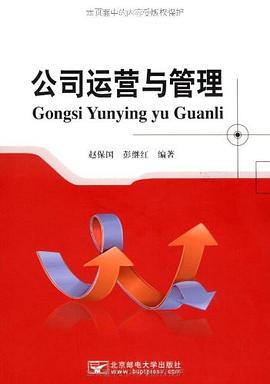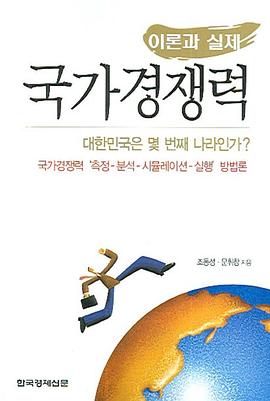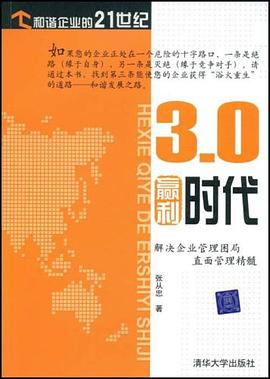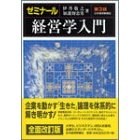

具体描述
"Mood Matters" makes the radical assertion that all social events ranging from fashions in music and art to the rise and fall of civilizations are biased by the attitudes a society holds toward the future. When the "social mood" is positive and people look forward to the future, events of an entirely different character tend to occur than when society is pessimistic. The book presents many examples from every walk of life in support of this argument. In addition, methods are given to actually measure the social mood and to project it into the future in order to forecast what’s likely or not over varying periods of time. Casti's writing is a pleasure to read and its contents an eye-opener.
作者简介
Professor John L. Casti received his Ph.D. in mathematics under Richard Bellman at the University of Southern California in 1970. He worked at the RAND Corporation in Santa Monica, CA, and served on the faculties of the University of Arizona, NYU and Princeton before becoming one of the first members of the research staff at the International Institute for Applied Systems Analysis (IIASA) in Vienna, Austria. In 1986, he left IIASA to take up a position as a Professor of Operations Research and System Theory at the Technical University of Vienna. He also served as a member of the External Faculty of the Santa Fe Institute in Santa Fe, New Mexico, USA, from 1992-2002, where he worked extensively on the application of biological metaphors to the mathematical modeling of problems in economics, finance and road-traffic networks, as well as on large-scale computer simulations for the study of such networks.
In 2000 he formed two companies in Santa Fe and London, Qforma, Inc. and SimWorld, Ltd, devoted to the employment of tools and concepts from modern system theory for the solution of problems in business and finance. In early 2005 he returned to Vienna where he has co-founded The Kenos Circle, a professional society that aims to make use of complexity science in order to gain a deeper insight into the future than that offered by more conventional statistical tools.
Professor Casti has written a numerous articles and seven technical monographs and textbooks on mathematical modeling. In addition, he is the editor of the journals Applied Mathematics & Computation (Elsevier, New York) and Complexity (Wiley, New York). In 1989 his text/reference works Alternate Realities: Mathematical Models of Nature and Man (Wiley, 1989) was awarded a prize by the Association of American Publishers in a competition among all scholarly books published in mathematics and the natural sciences. In 1992, he also published Reality Rules (Wiley, New York), a two-volume text on mathematical modeling.
In addition to these technical volumes, he has written several popular books on science: Paradigms Lost: Images of Man in the Mirror of Science (Morrow, 1989), which addresses several of the most puzzling controversies in modern science, Searching for Certainty: What Scientists Can Know About the Future (Morrow, 1991), a volume dealing with problems of scientific prediction and explanation of everyday events like the weather, stock market price movements and the outbreak of warfare, and Complexification (HarperCollins, 1994), a study of complex systems and the manner in which they give rise to counterintuitive, surprising behavior. He has also written two popular volumes on mathematics: Five Golden Rules: Great Theories of 20th-Century Mathematics---and Why They Matter, and its sequel, Five More Golden Rules (1995, 2000) both published by John Wiley & Sons (New York). His next work of popular science was Would-Be Worlds, a volume on computer simulation and the way it promises to change the way we do science. It was also published by John Wiley & Sons (New York) in 1996. In 1998 he published a volume of "scientific fiction", involving Ludwig Wittgenstein, Alan Turing, J.B.S. Haldane, C.P. Snow and Erwin Schrödinger in a dinner-party conversation on the question of the uniqueness of human cognition and the possibility of thinking machines. This book was published under the title The Cambridge Quintet by Little, Brown (UK) in December 1997 and by Addison-Wesley in the US in early 1998.
More recently, his published books include Art & Complexity (Elsevier, Amsterdam, 2005), a volume edited with A. Karlqvist, as well as a short volume on the life of the Austrian logician, Kurt Gödel, the book Gödel: A Life of Logic (Perseus Books, Cambridge, MA, 2003). In the same year he published the volume, The One, True, Platonic Heaven (Joseph Henry Press, Washington, DC, 2003), which addresses in a fictional format the question of the limits to scientific knowledge. The volume on art and complexity sparked off a continuing interest in the interrelationship between complex systems and artistic forms of all types, which is reflected in a set of papers currently in preparation addressing the complexity of scientific theories regarded as artistic forms.
His primary current research interests have also shifted somewhat to the exploration of questions in the social and behavioral realm and the relationship between social "moods" and their consequent social actions and behaviors. In this direction, his latest book, Mood Matter: From Rising Skirt Lengths to the Collapse of World Powers, to be published in 2010 by Copernicus Books, NY, addresses the directions and patterns of social causation and their implications for future trends and collective social events, such as styles in popular culture, the outcome of political processes, and even the rise and fall of civilizations.
Currently, Dr. Casti is a Research Scholar at the International Institute for Applied Systems Analysis in Laxenburg, Austria, where he heads an initiative for the study on Extreme Events in Human Society and Director of The Kenos Circle, a Vienna-based society of fellows devoted to exploration of the future.
目录信息
读后感
评分
评分
评分
评分
用户评价
相关图书
本站所有内容均为互联网搜索引擎提供的公开搜索信息,本站不存储任何数据与内容,任何内容与数据均与本站无关,如有需要请联系相关搜索引擎包括但不限于百度,google,bing,sogou 等
© 2026 book.wenda123.org All Rights Reserved. 图书目录大全 版权所有




















